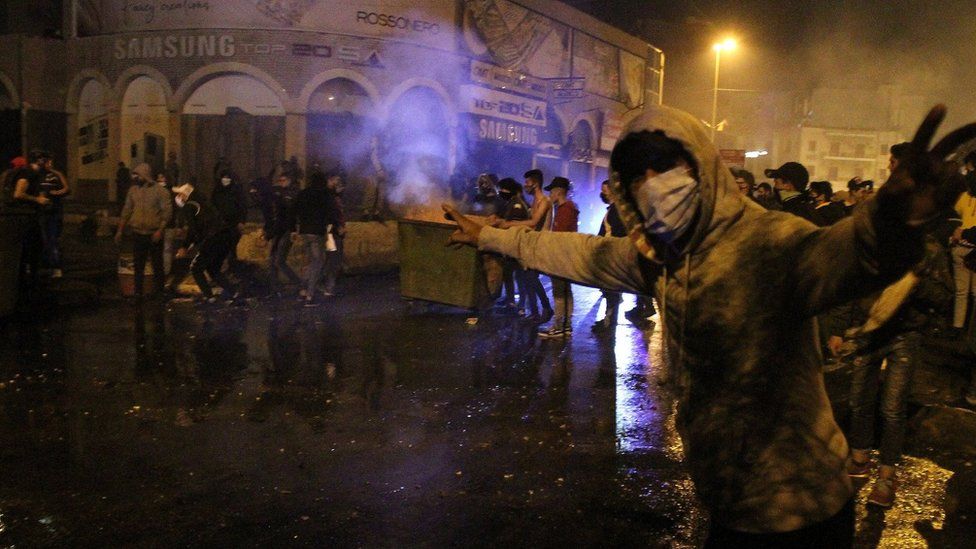
![Lebanese protesters gather outside the Serail, headquarters of the Governorate of North Lebanon, during ongoing demonstrations that marked the third consecutive night of protests [Fathi AL-MASRI/AFP]](https://www.aljazeera.com/wp-content/uploads/2021/01/000_8ZN36R.jpg?resize=770%2C513)
by middleeasteye.net — Amnesty International urged France to halt weapons sales to Lebanon, saying French-manufactured rubber bullets, tear gas grenades and launchers had played a “shameful” role in quelling peaceful demonstrations in the country. In a report released on Thursday by Amnesty, along with the University of California, Berkeley, and the University of Essex, a range of French ammunition from tear gas canisters and pepper sprays to grenade launchers, rubber bullets, and armoured vehicles were used to suppress protests between 2015 and 2020. Middle East Eye first reported in November 2019 that many of the tear gas canisters used against protesters in Lebanon were French-manufactured, with some being military-grade.
“France has for years been supplying Lebanese security forces with law enforcement equipment that they then used to commit or facilitate serious human rights violations,” the rights group said in a statement on Thursday. “We call on France to ensure that there are no further sales until the Lebanese authorities have acknowledged past violations,” said Aymeric Elluin, advocacy officer on arms transfers at Amnesty International France. “Lebanese security forces are operating in a climate of impunity.”
‘No one held to account’
The London-based rights group accused security forces of firing tear gas canisters directly at protesters and shooting rubber bullets at chest-level during anti-government protests between October 2019 and August 2020. This “excessive use of force” led to serious injuries to the head, eyes and upper body, the group said. In August 2020, Human Rights Watch found that security forces had fired live ammunition, metal pellets and rubber balls to disperse protests. Amnesty’s Elluin said there “has been no effective investigation of the unlawful use of weapons, including those made in France, against peaceful protesters, and not a single security officer has been held to account by judicial authorities”. This week, Lebanese security forces were accused of using tear gas and rubber bullets against anti-lockdown protesters in the northern city of Tripoli. The clashes led to hundreds of injuries, with one death. Lebanon’s unprecedented economic crisis and the coronavirus pandemic have piled unprecedented hardships on the country’s residents.
by bbc — A man has died after protesters angry with a total coronavirus lockdown and dire economic conditions clashed with riot police in the Lebanese city of Tripoli for a third consecutive night. Omar Tayba, 29, was among 220 people injured during the unrest. His brother said he had been shot. Witnesses and local media reported that police fired live rounds at protesters. The round-the-clock curfew imposed this month to halt a surge in Covid-19 cases has worsened Lebanon’s economic crisis. People are forbidden from leaving their homes unless they are essential workers, and they must rely on deliveries from supermarkets for food. Many have also been left without an income in a country where a third of the workforce is unemployed and a large proportion relies on the informal sector. The government is providing some financial assistance to 230,000 families, but half the population of 6 million is estimated to be living under the poverty line and almost a quarter is living in extreme poverty.